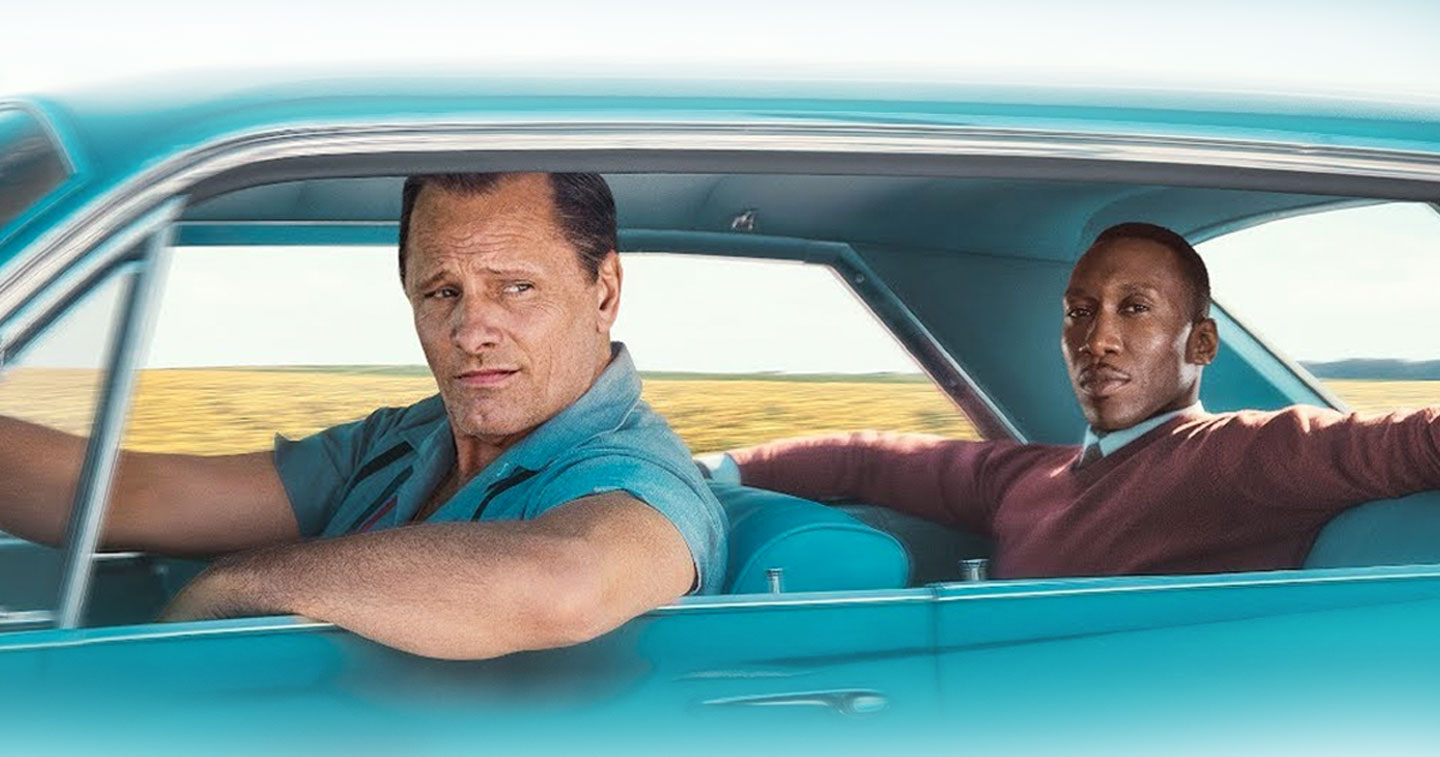One of the easiest sources of drama in any story is when people of different backgrounds clash. The differences in the way each was raised or how they look often proves fertile ground for causing tension between characters as both sides initially do not know how to relate to the other. That tension between a wealthy, talented African-American musician and a rough-around-the-edges Italian-American bouncer/driver is at the heart of this year’s winner for Best Picture at the 91st Academy Awards, Green Book.
In 1962, Frank Villalonga (Viggo Mortensen) is a bouncer who is searching for a job when the nightclub he works for is being renovated. Frank, also known as “Tony Lip,” learns that a “Dr. Shirley” is looking for a driver for eight weeks. Meeting Doctor Donald Shirley (Mahershala Ali), Tony learns that the former is actually a renowned pianist who is going on a concert tour through the Deep (and segregated) American South, thus needing Tony’s services for a premium amount.
After talking things over with his wife Dolores (Linda Cardellini), Tony agrees to Dr. Shirley’s terms and promises to write her often. Don’s record label gives Tony a copy of The Negro Motorist Green Book, a guidebook for African-American drivers to find motels, restaurants, and gas stations that would serve them. As they embark on the drive, Tony learns that Don is actually a very refined and educated man, and that he would like Tony to also be more refined and less disgusting in the car.
Tony notices that Don really is very gifted at the piano, and he is appalled in several instances that the latter is treated shabbily by white people. Tony helps Don try to relate more to people of a lower social class than him, including teaching how to eat Kentucky Fried Chicken in Kentucky itself. Don, in turn, helps Tony write more insightful and romantic letters to Dolores to express how much he misses his wife. In one galling instance, the Tony and Don are thrown in jail by a police officer who makes a snide comment about Don resulting in Tony punching the officer. This forces Don to make a call to Attorney-General Robert F. Kennedy to secure the pair’s release, something that Don feels humiliates him.
As the tour nears its conclusion at Christmas, Tony sees that even in a place where Don is invited to perform, he is not allowed to eat or even use the bathroom like white people do. Ending their tour back in New York on Christmas Eve, Tony is welcomed back by Dolores and their big Italian family. Finally, Don too arrives at their Christmas dinner and is thanked by Dolores for helping to write Tony’s letters.
It isn’t a surprise that Green Book earned all kinds of nominations from different award-giving bodies, and even won Best Picture at the 91st Oscars. The surprise might be that its director, Peter Farrelly, co-directed laugh-out-loud comedies such as There’s Something About Mary, Shallow Hal, and Dumb and Dumber with his brother, Bobby Farrelly. Peter also co-wrote the screenplay with Nick Villalonga (Tony and Dolores’ son), and Brian Hayes Currie, resulting in an Academy Award for Best Original Screenplay.
For his very un-Aragorn role as the fat, bigoted, offensive Tony Lip, Mortensen earned an Academy Award nomination for Best Actor, as well as nominations from the Screen Actors Guild, British Film Academy, Golden Globes, and others. After winning the Oscar for Best Supporting Actor for 2016’s Moonlight, Ali portrays a completely different character even as he won the same award at this year’s Oscars. His portrayal of a very cultured yet socially-awkward Don Shirley in the early 1960s saw Ali nearly sweeping the Best Supporting Actor category at several awards shows.
As Ali himself said in receiving his Oscar, he called Mortensen his “partner” in this film, and it is their awkward chemistry and later friendship that is at the heart of Green Book. Make no mistake, however, this is very far from another award-winning picture that had driving as the central motif between a white character and a black character. Whereas 1989’s Driving Miss Daisy saw an African-American chauffeur employed for over two decades by a white woman, Green Book’s time is considerably shorter and the roles are essentially reversed.
Though Green Book snagging the Best Picture Oscar was viewed as an upset (Alfonso Cuaron’s Roma was the clear favorite) and some have questioned why this movie won instead, that should take nothing from the performances delivered and the story that Farrelly and Company delivered.
—
About the contributor:








